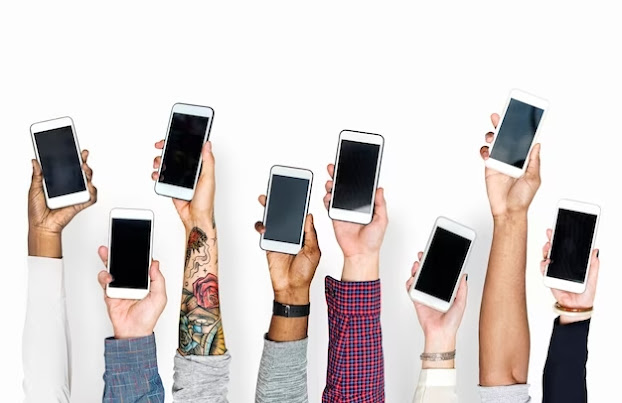The Role of Refurbished Phones in Reducing the Environmental Impact of Phone Production
In recent years, the concept of a circular economy has gained significant traction as a sustainable alternative to the traditional linear economic model. The linear model follows a "take, make, dispose" pattern, where resources are extracted, products manufactured, and then discarded as waste. In contrast, a circular economy aims to create a closed-loop system where products, materials, and resources are continually reused, refurbished, and recycled. In this article, we will explore the role of refurbished phones in promoting a circular economy and reducing the environmental impact of phone production.
The Environmental Toll of Phone Production
The production of refurbished smartphones, like any other electronic device, comes with a considerable environmental toll. From the extraction of raw materials to the energy-intensive manufacturing processes, phone production consumes valuable resources and generates significant greenhouse gas emissions. Additionally, the improper disposal of electronic waste contributes to environmental pollution and poses health risks to communities.
The Circular Economy Approach
The circular economy approach offers a sustainable solution to address the environmental challenges associated with phone production and disposal. Instead of treating phones as disposable items with a limited lifespan, the circular economy seeks to extend the life cycle of these devices through refurbishment, repair, and reuse.By adopting this approach, companies like NOORAAN can make substantial strides in sustainability and contribute positively to the environment.
Extending the Lifespan of Phones
When a phone is refurbished, it undergoes a comprehensive process of inspection, repair, and testing to ensure it functions optimally. Damaged or faulty components are replaced, restoring the device to a near-new condition. By extending the lifespan of phones through refurbishment, we reduce the demand for new devices, subsequently decreasing the need for additional raw materials and energy-intensive manufacturing processes.
Reducing Electronic Waste
Electronic waste, commonly referred to as e-waste, is a growing concern worldwide. Many discarded electronic devices end up in landfills or are improperly recycled, leading to environmental pollution and the release of hazardous substances. Refurbishing and reusing phones significantly reduces the amount of e-waste generated, as these devices find new owners instead of becoming obsolete and discarded. NOORAAN's focus on refurbishment plays a crucial role in reducing electronic waste. By giving new life to previously owned phones, we prevent these devices from becoming part of the ever-growing e-waste stream.
Lowering Carbon Footprint
In a linear economy, each new product requires fresh resources and energy for production, contributing to a high carbon footprint. Conversely, the refurbishment of phones requires fewer resources and energy compared to manufacturing new devices. By opting for refurbished phones, consumers can help lower the overall carbon footprint associated with the smartphone industry. By prioritizing refurbished phones, NOORAAN plays a part in lowering the carbon emissions associated with the production of new devices
Resource Conservation
The circular economy emphasizes resource conservation, and the refurbishment of phones aligns perfectly with this principle. By reusing and repairing existing phones, we reduce the demand for rare and precious resources used in phone production, such as minerals like gold, silver, and coltan. Conserving these resources not only benefits the environment but also helps mitigate social and geopolitical issues related to resource extraction.The refurbishment of phones by NOORAAN contributes to resource conservation.
Job Creation and Skills Development
The refurbishment of phones contributes to job creation and skills development in the electronics and technology sector. Skilled technicians are needed to perform the thorough inspection, repair, and testing processes involved in refurbishing phones. Moreover, refurbishment centers and businesses provide employment opportunities and promote the growth of a sustainable and skilled workforce.
Promoting a Sustainable Consumer Culture
The adoption of refurbished phones also promotes a sustainable consumer culture. By choosing refurbished devices over new ones, consumers signal a preference for products that align with environmental values. This demand for refurbished products encourages manufacturers and retailers to invest in sustainable practices and extend the lifespan of their products.
Closing the Loop: Recycle and Reuse
In addition to refurbishing phones, the circular economy also emphasizes the importance of recycling and reusing materials. When a phone reaches the end of its usable life, responsible recycling processes can recover valuable materials, reducing the need for further extraction. The recycled materials can then be used in the manufacturing of new devices or other products, closing the loop and minimizing waste.
Collaboration and Industry Participation
To fully harness the potential of refurbished phones in promoting a circular economy, collaboration among various stakeholders is crucial. Governments, electronics manufacturers, consumers, and recycling organizations need to work together to create an ecosystem that supports the refurbishment, recycling, and responsible disposal of phones. Public awareness campaigns and incentives can also encourage consumers to choose refurbished options and participate in sustainable practices.
Conclusion
Refurbished phones play a vital role in promoting a circular economy and reducing the environmental impact of phone production. By extending the lifespan of phones, reducing electronic waste, conserving resources, and lowering the carbon footprint, refurbished devices present a sustainable and eco-friendly alternative to constantly purchasing new phones. Embracing the circular economy approach not only benefits the environment but also fosters a more sustainable and responsible consumer culture. As individuals, businesses, and governments join forces to support the refurbishment and recycling of phones, we take significant steps towards building a more sustainable and greener future for generations to come. NOORAAN's commitment to promoting refurbished phones exemplifies their dedication to environmental sustainability and responsible business practices. By actively participating in the circular economy and reducing the environmental impact of phone production, the company sets a commendable example for the tech industry.




Comments
Post a Comment